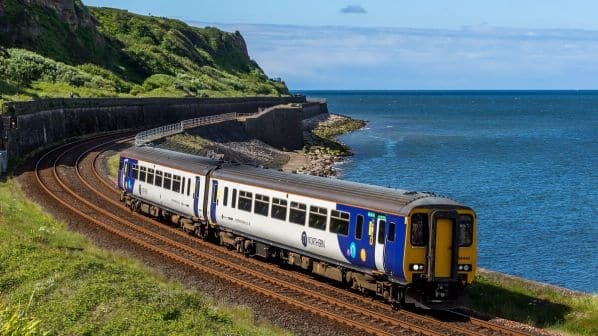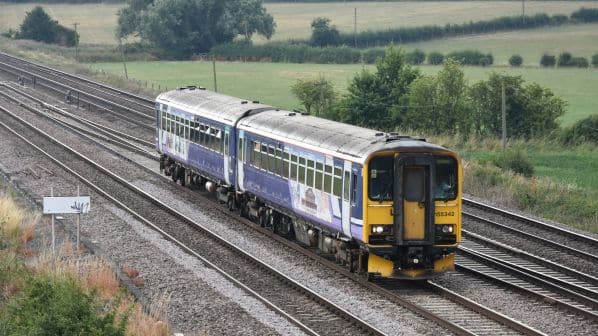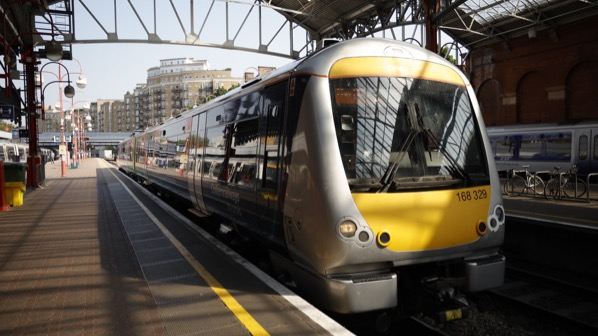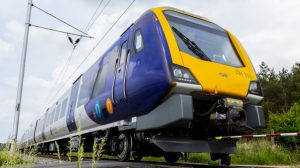BRITISH operator Northern has invited expressions of interest in a framework contract to supply up to 450 trains to replace a significant proportion of its mainly diesel passenger rolling stock fleet.
The framework agreement would run for eight years, with firm orders to be placed under a phased programme. Each phase would include an agreement to provide technical support and supply spare parts for the new trains.
The initial order under the framework would be to supply “multi-mode multiple-units,” with options to supply battery-electric hybrid trains or pure EMUs as well as additional hybrid trains and intermediate cars.
The new trains must have a minimum design life of 35 years. The hybrid trains must be capable of conversion to electric or battery-electric traction.
A supplier briefing is due to be held on August 24. Requests to participate in the tender must be submitted by September 25. Northern expects to issue invitations to tender (ITT) around October 26.
Northern says that the new trains will provide medium and long-term value for the Department for Transport (DfT) which mainly funds its services, as well as for taxpayers and passengers, by enabling it to avoid the rising costs of operating, maintaining and leasing an ageing fleet.
Finance will be sought under a separate procurement process. The new trains will be purchased by an owning party that would then lease the fleet to Northern.
Chiltern fleet replacement strategy
Meanwhile, Chiltern Railways is now seeking proposals from rolling stock manufacturers, owners and modifiers for the supply of between 20 and 70 new or converted low-emission multiple units, as a possible alternative or in addition to full battery EMUs.
Worth an estimated £400m, the contract includes associated maintenance, infrastructure and depot upgrade services.
The request for proposals does not cover financing the new fleet, and Chiltern Railways says that it may separately seek a financer to support the purchase.
The deadline for responses is September 4 and they will inform the preparation of a formal business case. Chiltern hopes to be able to award a contract within the next 12 months, with the new fleet entering service around 2027-28 to replace its fleet of 39 two-car class 165 DMUs.
These trains date from 1990 and mainly operate commuter services on Chiltern’s 65km London - Aylesbury route.
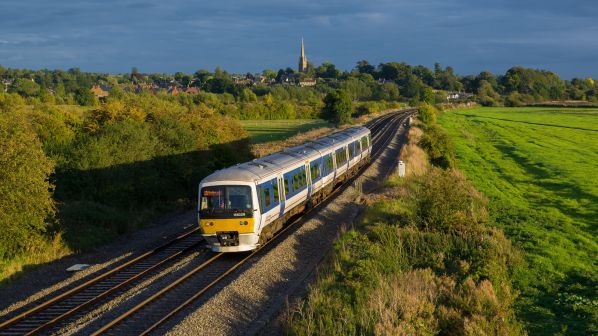
This is the first stage of a fleet replacement programme outlined in Chiltern’s recently unveiled Right Route strategy, which aims to deliver “an easier, greener and better experience for our customers by 2030,” according to Chiltern Railways managing director, Mr Richard Allan.
The Right Route report says that according to Office of Rail and Road (ORR) statistics, Chiltern has the third-oldest train fleet among Britain’s passenger operators with an average age of 28.9 years.
“Our fleet is ageing and our communities are growing, meaning we must respond in a strategic and ambitious manner,” the report says. “Delivering a fleet of the future is essential to respond to the changing needs of our community so we can continue to run a reliable and customer-focused service.”
“Our current fleet is not fit for a decarbonised future. We need to make a significant change if we are going to deliver our green ambitions,” the report says. “We want to be proud of a clean, modern and effective fleet of trains that people want to use.”
Chiltern says that it has worked hard since the Covid-19 pandemic to reduce operating costs and grow revenue, and is aiming to become financially self-sufficient within the next five years. “This demonstrates the current and future growth potential of Chiltern Railways and makes the case for investment to be prioritised on our routes,” it says.
Investment by the government and Chiltern itself would help to fund the replacement of DMUs operating commuter services with battery hybrid trains. To decarbonise main line services operating on the route to High Wycombe, Warwick and Birmingham, Chiltern says that “electrification of our route would create the opportunity to deliver modern trains across the entire inter-city network.”
“Replacing our ageing diesel fleet with new, environmentally-friendly trains is at the heart of our Right Route vision,” Allan says. “This is needed to unlock essential benefits including more capacity and better quality for customers, improved air quality for all, and to support economic growth.
“We are looking forward to working with partners to make a strong economic case for the necessary investment to make our 2030 vision possible.”
In the meantime, Chiltern’s decarbonisation strategy has seen the introduction of hydrotreated vegetable oil (HVO) as fuel for passenger trains in Britain for the first time. HVO fuel is now being used by the class 68 diesel locomotives that haul mainline service between London and Birmingham.
HVO is made almost entirely from used cooking oil. Although more expensive than diesel, Chiltern points out that it can reduce greenhouse gas emissions by up to 90% and particulates by 85%. Using HVO can also cut NOx and carbon monoxide emissions depending on engine type and usage.
“We are determined to operate a railway that is easier, greener, and better for our customers,” says Allan. “The conversion of a key part of our fleet of trains to HVO fuel will make a big difference in terms of emissions.”
Supply industry responds
The two tenders have been welcomed by the Railway Industry Association (RIA), which represents suppliers in Britain. In a recent report, RIA had warned that the domestic supply was at risk if no orders for new rolling stock were forthcoming.
RIA notes that both tenders highlight the need for flexible low-carbon rolling stock, which will improve both the environmental sustainability of rail and the passenger experience. This is line with the RIA’s #RailDecarb23 campaign, which urges the British government to accelerate plans for rail decarbonisation.
“We naturally welcome these two significant tenders of up to 520 low-carbon multiple-units,” says RIA technical director, Mr David Clarke.
“These tenders demonstrate a strong commitment to the future of the supply chain, resulting in a significant strengthening of the pipeline of work, which will deliver modern trains equipped with cleaner technology,” he says.
“However, it is important to recognise that this volume of orders is needed annually for the supply chain to be able to permanently break out of the historic boom and bust cycle.”
For detailed data on rolling stock orders around the world, subscribe to IRJ Pro.
